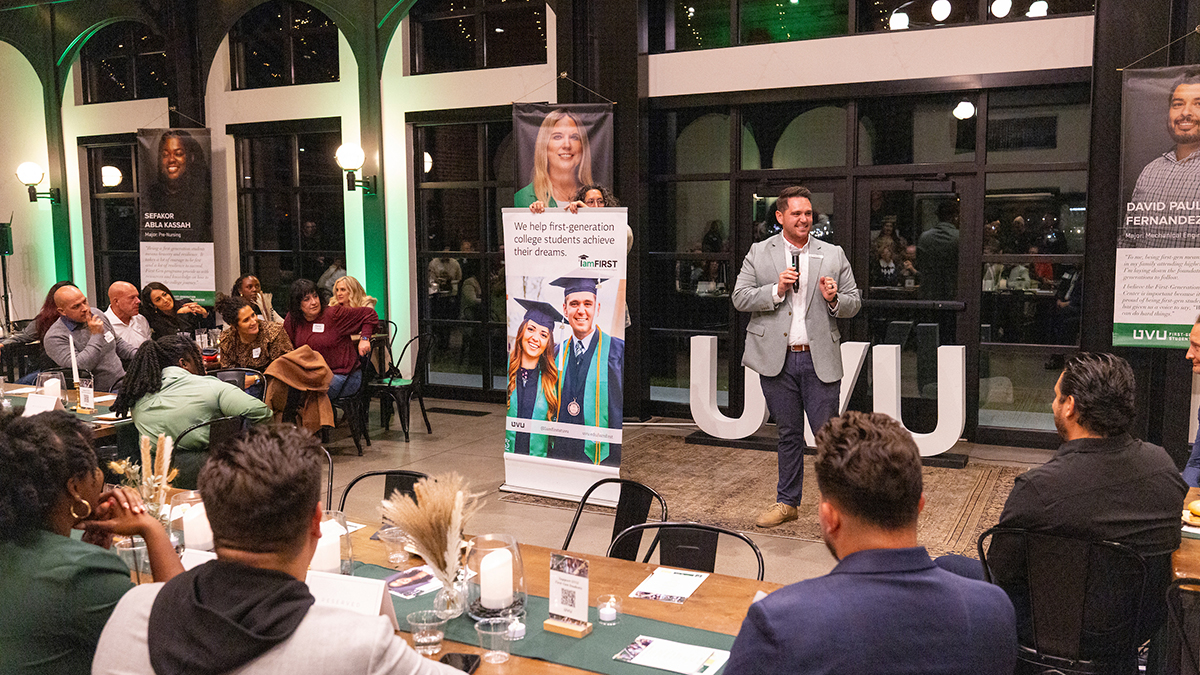For employees in UVU’s First-Generation Student Success Center, the impact goes beyond getting to graduation. It’s about creating a community on campus — a place for them to belong.

Utah Valley University’s Class of 2025 featured more than 14,000 students. About a third of those were “first-generation” college students — people from families where no parent or guardian completed a four-year degree in the United States.
But for employees in UVU’s First-Generation Student Success Center, the impact goes beyond getting to graduation. It’s about creating a community on campus — a place for them to belong.
“I think for every college student, they're going to have failures, big and small, and as long as you don't feel like you have to navigate that alone, it's going to be a little bit better,” said Colton Simons, director of UVU’s First-Gen Center. “So, we've wanted to create a space where students can just come in and not even know what they need help with, just that they need help, and then we can help them figure it out.”
According to Simons, more than 19,000 students enrolled at UVU are first-generation. That’s more than 40 percent of the total student body. And while many of those students come from racial, ethnic, and socioeconomic minorities, a lot of them also come from white middle-class families.
They do, however, usually have one thing in common, Simons said: they’re hard workers.
“Regardless of their family background or anything, they work hard. That's what they've seen their parents do,” he said. “For some of them, their parents started businesses, so a lot of these students helped run those businesses. They know how to be scrappy, they know how to be resourceful, and they know how to make things happen — but they're nervous. They're scared to ask questions. They may step into the classroom and feel like they are at a disadvantage because nobody's been able to fully prepare them for what's ahead.”
Madison Saville, who serves as an administrative assistant in the First-Gen Center and is herself a first-generation college graduate, said one of the most difficult things for these students is the urge to compare themselves to their peers, who may have had more preparation.
“I remember coming in and expecting to be like, ‘I should know everything about scholarships. I should know everything about organizing my schedule and what I want to do for a major and a degree.’ And I just didn't, and I didn't know who to ask. I didn't know what I didn't know,” Saville said.
The First-Gen Center exists specifically to answer those questions, Simons said. But more than that, it’s about giving students a home on campus.
“We focus on three pillars: community, advocacy, and mentorship,” he said. “Our mission is to make sure that first-gen students — and really, any student on campus — know they have a place to go for help, support, and belonging. They have a landing place.”
To help students feel at home, this year, the First-Gen Center launched First-Gen Crew, a student-leadership group committed to building the campus community and bringing first-gen students together. The group held 32 events in the 2024-25 academic year.
Other recent First-Gen Center highlights include:
But the impact, Simons said, is more than just the numbers. He said first-generation students are “cycle breakers,” and their influence goes far beyond the degrees they receive or the jobs they step into.
“UVU has altered literal generations,” Simons said. “If we can get one student through that program to their degree, to their career, you have altered the future of hundreds and thousands of people. It sounds really cliché, but that’s the ripple effect, and it is showing that exponential change that one person can make, which is why it's so vital that these programs still exist.”